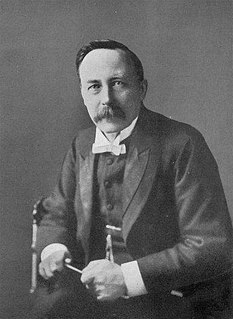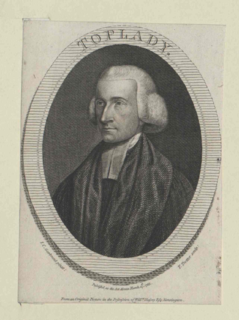A Quote by Samuel Taylor Coleridge
The present system of taking oaths is horrible. It is awfully absurd to make a man invoke God's wrath upon himself, if he speaks false; it is, in my judgment, a sin to do so.
Related Quotes
The cliché, God hates the sin but love the sinner, is false on the face of it and should be abandoned. Fourteen times in the first fifty Psalms alone, we are told that God hates the sinner, His wrath is on the liar, and so forth. In the Bible, the wrath of God rests both on the sin (Romans 1:18ff) and on the sinner (John 3:36).
Wrath, unlike love, is not one of the intrinsic perfections of God. Rather, it is a function of God's holiness against sin. Where there is no sin, there is no wrath-but there will always be love in God. Where God in His holiness confronts His image-bearers in their rebellion, there must be wrath, or God is not the jealous God He claims to be, and His holiness is impugned. The price of diluting God's wrath is diminishing God's holiness.
Our passions are the chief means of self-preservation; to try to destroy them is therefore as absurd as it is useless; this would be to overcome nature, to reshape God's handiwork. If God bade man annihilate the passions he has given him, God would bid him be and not be; He would contradict himself. He has never given such a foolish commandment, there is nothing like it written on the heart of man, and what God will have a man do, He does not leave to the words of another man. He speaks Himself; His words are written in the secret heart.
For the essence of sin is man substituting himself for God [Gen. 3:1-7], while the essence of salvation is God substituting himself for man [2 Cor. 5:21]. Man asserts himself against God and puts himself where only God deserves to be; God sacrifices himself for man and puts himself where only man deserves to be.
What is sin? It is the glory of God not honored. The holiness of God not reverenced. The greatness of God not admired. The power of God not praised. The truth of God not sought. The wisdom of God not esteemed. The beauty of God not treasured. The goodness of God not savored. The faithfulness of God not trusted. The commandments of God not obeyed. The justice of God not respected. The wrath of God not feared. The grace of God not cherished. The presence of God not prized. The person of God not loved. That is sin.
It is no strain of metaphor to say that the love of God and the wrath of God are the same thing, described from opposite points of view. How we shall experience it depends upon the way we shall come up against it: God does not change; it is man's moral state that changes. The wrath of God is a figure of speech to denote God's unchanging opposition to sin; it is His righteous love operating to destroy evil. It is not evil that will have the last word, but good; not sorrow, but joy; not hate, but love.
Whoever will be president, if they wish to save America from the Wrath of God and the course that America is on, which will bring about America's destruction, they must consider justice for the Black and the Red and the Brown. If they do not consider that by separating the Black man and woman and allowing us to go free to build a nation of our own, this and this alone will turn away the wrath of God, will lessen the storms, and lessen the increased Judgment of God using the forces of nature.





































